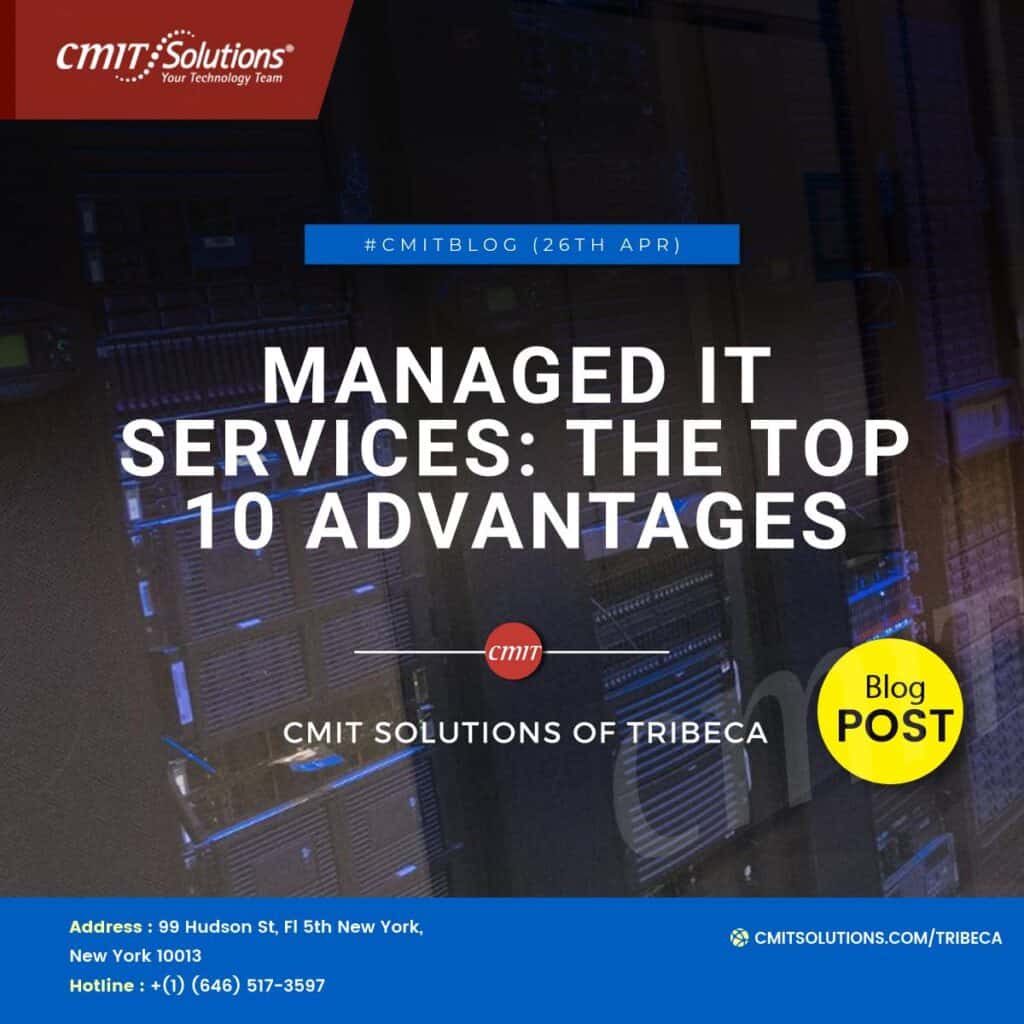Are you still relying on your internal Managed Services IT department to maintain your systems? Maybe a change is in order.
Since the days of “break/fix IT,” technology has advanced significantly, and most internal IT services cannot keep up with innovation. Because of this, the information technology used by many firms is reactive rather than proactive. As a result, their systems cannot keep up with the needs of a developing business in the digital age.
Now is the time to rethink if you’ve ever dismissed the concept of outsourcing assistance to a third-party source because you believe your present IT structure is adequate or due to cost concerns.
Managed services have various advantages, mainly if you use a system like Microsoft Dynamics 365.
What exactly is Managed Services?
Before we get into the benefits of the managed services model, let’s go through the fundamentals.
The process of outsourcing business administration and management functions to a third party is referred to as managed services. This term isn’t limited to IT because managed services may encompass anything from supply chain management to marketing strategy to contact center operations. However, managed IT services are the most often used and will be the subject of this article.
1. Concentrate on the Primary Goals
Your business’s need for IT will grow as well. Your IT team might be able to handle some of the increased workloads. Still, they will likely become overburdened and unable to scale in line with the needs of your business, forcing you to delegate additional tasks to staff members who aren’t on the IT team, which can divert attention from your company’s primary goals.
One benefit of managed services is that you may fill up any needed gaps while enabling your employees to concentrate on the tasks for which they were hired.
A suitably competent managed services partner will provide a flexible service model that allows you to choose the degree of care you desire, whether simply keeping the lights on or outsourcing your whole IT department.
2. Obtain the Required Expertise
New technology brings new difficulties that your present IT team may be unable to address. Then there’s the management issue: Whether your systems are in the cloud or on-premise, you’ll need many resources to support your business solutions, which can be difficult if your IT department is a one-person show.
One of the primary benefits of the managed services model is the ability to engage a whole team of IT specialists for a single monthly fee. Certain Managed Services Providers (MSPs) even adopt a shared approach to managed services, which means you may add or remove professionals from your managed services team based on the needs of each project. These professionals can assist you in keeping your systems operational and maximizing their potential. They include technical, functional, architectural, and training consultants.
3. Keep prices low
One of its clear economic advantages is that managed services cut labor costs and eliminate the need to hire and educate new IT specialists. The opportunity to diversify your talent pool is especially appealing because most MSPs provide a hybrid model of onshore and offshore resources, lowering the average effective rate while broadening your resource pool.
Because you sign a service-level agreement tailored to your company’s specific needs, you will never be charged for unanticipated service costs.
For further savings, look for an MSP who has a solid strategic connection with your solution or cloud provider; they will be able to escalate and advocate on your behalf, allowing you to reinvest the money you save back into your organization.
4. Adjust the scale as needed.
As your technological requirements change, you’ll need to scale your system up or down to meet them. Fortunately, systems like Dynamics 365 are designed to be very scalable, but you may still want additional support. MSPs can adapt to changes in demand in real-time, so system downtime is never an issue.
To get the most value and scalability out of your collaboration, seek an MSP that has hundreds of consultants accessible (and can bring on more as required) and offers advanced services such as proactive monitoring and improved services release management, reporting, and more.
5. Obtain Assistance
You Never Have to Worry About Availability With an MSP, you never have to worry about availability because most MSPs provide 24/7 flexibility, on-call choices, and weekend assistance (though it’s essential to remember that these are frequently given as cost alternatives). When looking for the best MSP, seek a worldwide firm that can handle several time zones and provides round-the-clock support, so you can be confident that assistance is there whenever you need it.
6. Avoid Costly Downtime
Another benefit of managed services is that MSPs take a proactive approach to maintenance rather than waiting for something to go wrong. MSPs use remote monitoring and management to find, identify, and resolve potential problems before they become serious ones. It is easy to understand how outsourcing to an MSP pays for itself, given that network outages may cost businesses up to $5,600 per minute or more than $300,000 per hour.
An MSP can offer seasoned backup and disaster recovery services to get your systems back up and running if something goes wrong.
7. Establish a Dependable Point of Contact
When working with an MSP, you’ll have a dedicated team led by a single customer success manager who is intimately familiar with your company and your business solutions, as opposed to a fluctuating cast of characters (CSM). Your CSM will function as a trusted point of contact for all issues involving your vendors, handling them on your behalf.
There is a written escalation system and a secondary contact ready to take over if your CSM isn’t accessible for whatever reason (after all, everyone needs a vacation), guaranteeing that you always have someone on your side.
8. Obtain Security and Compliance Support
Daily, software systems like Dynamics 365 acquire and analyze an exponential quantity of data to benefit your organization – data that must be kept safe and compatible with current industry requirements.
Although it would be wonderful if they could, MSPs cannot manage corporate compliance requirements on your behalf. Still, they may work with your legal team to identify which regulations need to be known about to take precautions to ensure that your systems comply.
The Qualities of a Good Managed Service Provider
We’ve covered some of the features to look for in a managed services provider throughout this post, so let’s go over them again. The perfect MSP will:
- Provide an adaptable service model.
- Take a collaborative approach to managed services.
- Have an excellent strategic partnership with your solution supplier or cloud provider.
- Have hundreds of consultants on hand.
- Provide sophisticated services
- Multiple time zones are supported.
- Provide round-the-clock assistance
- For preventative maintenance, use remote monitoring and management.
- Have a comprehensive backup and disaster recovery plan in place.
- Have a dependable, single point of contact for your company.
- Have a documented escalation process and a backup contact.
- Address compliance problems with your legal team.
If your MSP meets all of these requirements, you may be confident that your systems are in excellent hands.








